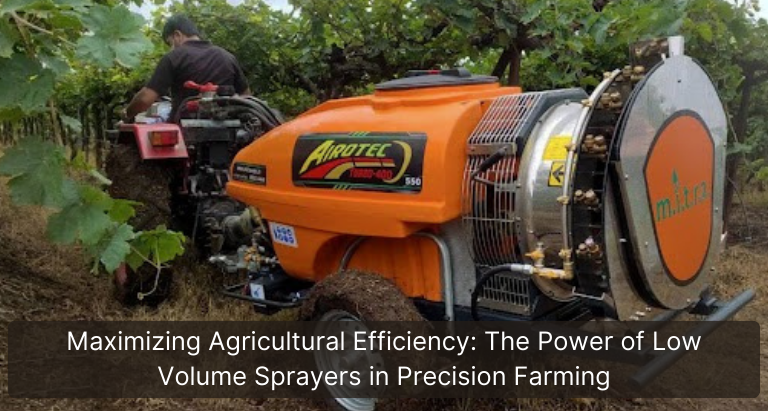In modern agriculture, optimizing efficiency and precision is crucial for sustainable and cost-effective practices. One technology that has gained prominence in recent years is the low volume sprayer. This blog post aims to provide an overview of what low volume sprayers are, their applications in agriculture, and the advantages they offer to farmers.
Understanding Low Volume Sprayers:
Low volume sprayers, also known as low-volume or low-drift sprayers, are agricultural equipment designed to apply pesticides, herbicides, fertilizers, and other agricultural inputs in a highly targeted and controlled manner. Unlike conventional sprayers that emit large volumes of liquid, low volume sprayer utilize advanced nozzle technology and optimized droplet size to achieve efficient coverage while minimizing waste and drift.
Applications of Low Volume Sprayers:
Precision Crop Protection: Low volume sprayers are widely used for precise application of pesticides and herbicides. By delivering smaller droplets directly to the target area, these sprayers ensure effective pest control while minimizing environmental impact and reducing chemical usage.
Fertilizer Application: The precise distribution capabilities of low volume sprayers make them suitable for applying liquid fertilizers. Farmers can accurately target specific areas, ensuring nutrients reach the roots of plants efficiently. This promotes balanced nutrient uptake, improves plant health, and reduces fertilizer waste.
Specialty Crop Production: Low volume sprayers are particularly valuable in specialty crop production, such as vineyards, orchards, and nurseries. The ability to apply inputs with precision helps protect delicate plants, minimize spray drift, and optimize resource utilization.
Advantages of Using Low Volume Sprayers:
Reduced Input Costs: One of the significant advantages of low volume sprayers is their ability to reduce input costs. By precisely applying the required amount of pesticides, herbicides, and fertilizers, farmers can avoid overapplication and minimize wastage. This not only reduces the financial burden but also contributes to environmental sustainability.
Enhanced Environmental Safety: Low volume sprayers are designed to minimize spray drift, which is crucial for environmental safety. The optimized droplet size produced by these sprayers helps prevent the spread of chemicals beyond the intended target area, minimizing the risk to nearby water sources, beneficial organisms, and neighboring crops.
Improved Efficiency and Productivity: With low volume sprayers, farmers can achieve more efficient and productive operations. The ability to target specific areas and deliver inputs accurately reduces the time and effort required for re-application. Moreover, the reduced need for refilling and increased spraying speed improves overall efficiency in the field.
Enhanced Crop Health and Quality: By providing precise application of inputs, low volume sprayers contribute to improved crop health and quality. Pesticides and herbicides can be applied at the right time and in the right quantities, effectively controlling pests and weeds. This promotes healthier plant growth, better yield, and higher-quality produce.
Conclusion:
The low volume sprayer is a valuable tool in modern agricultural practices, offering precise application of pesticides, herbicides, and fertilizers while minimizing waste and environmental impact. With its ability to reduce input costs, enhance environmental safety, improve efficiency, and promote crop health, the adoption of low volume sprayers can lead to more sustainable and productive farming operations. As technology continues to advance, low volume sprayers and Agriculture Sprayers are expected to play an increasingly important role in the future of precision agriculture.
